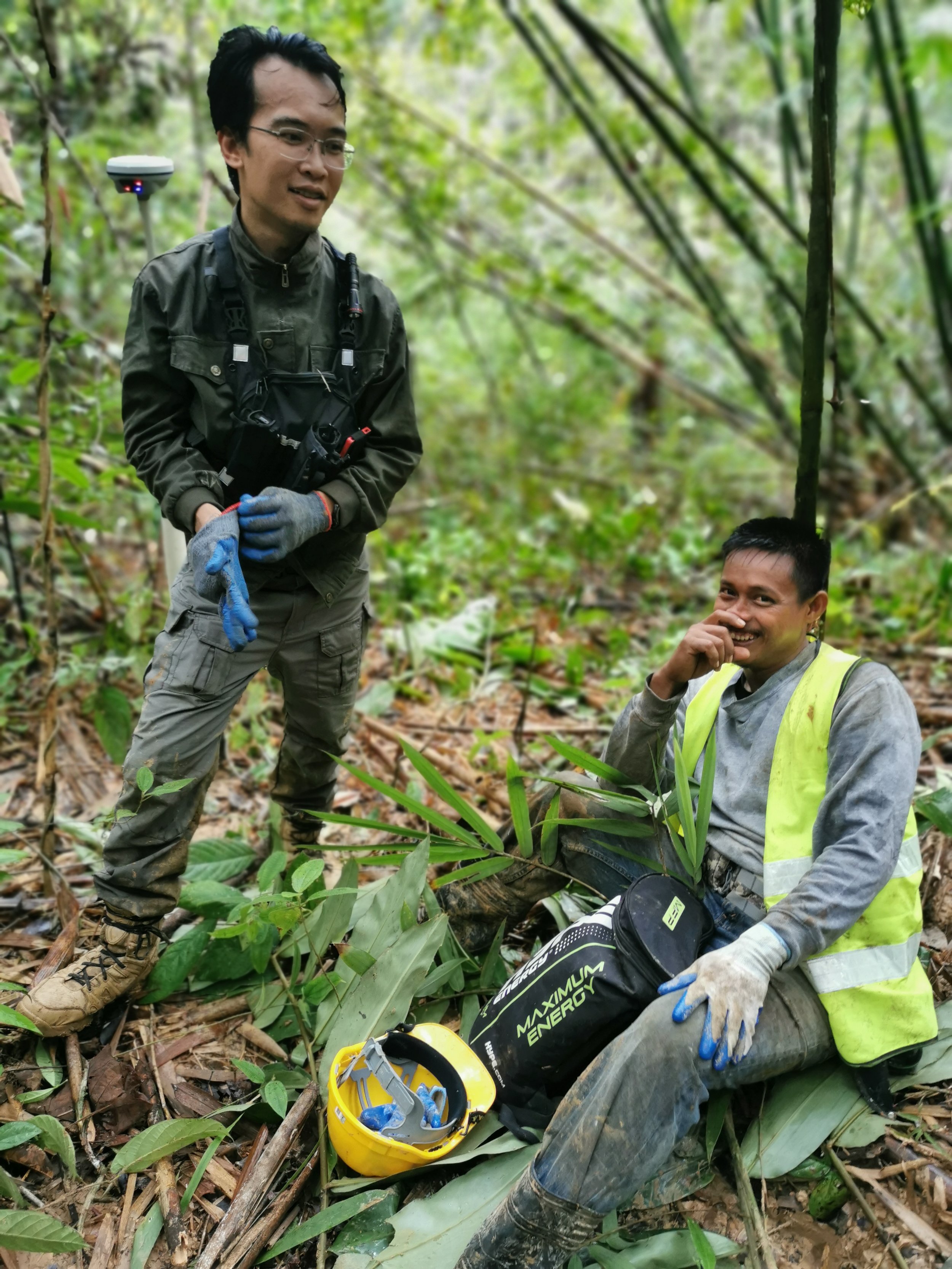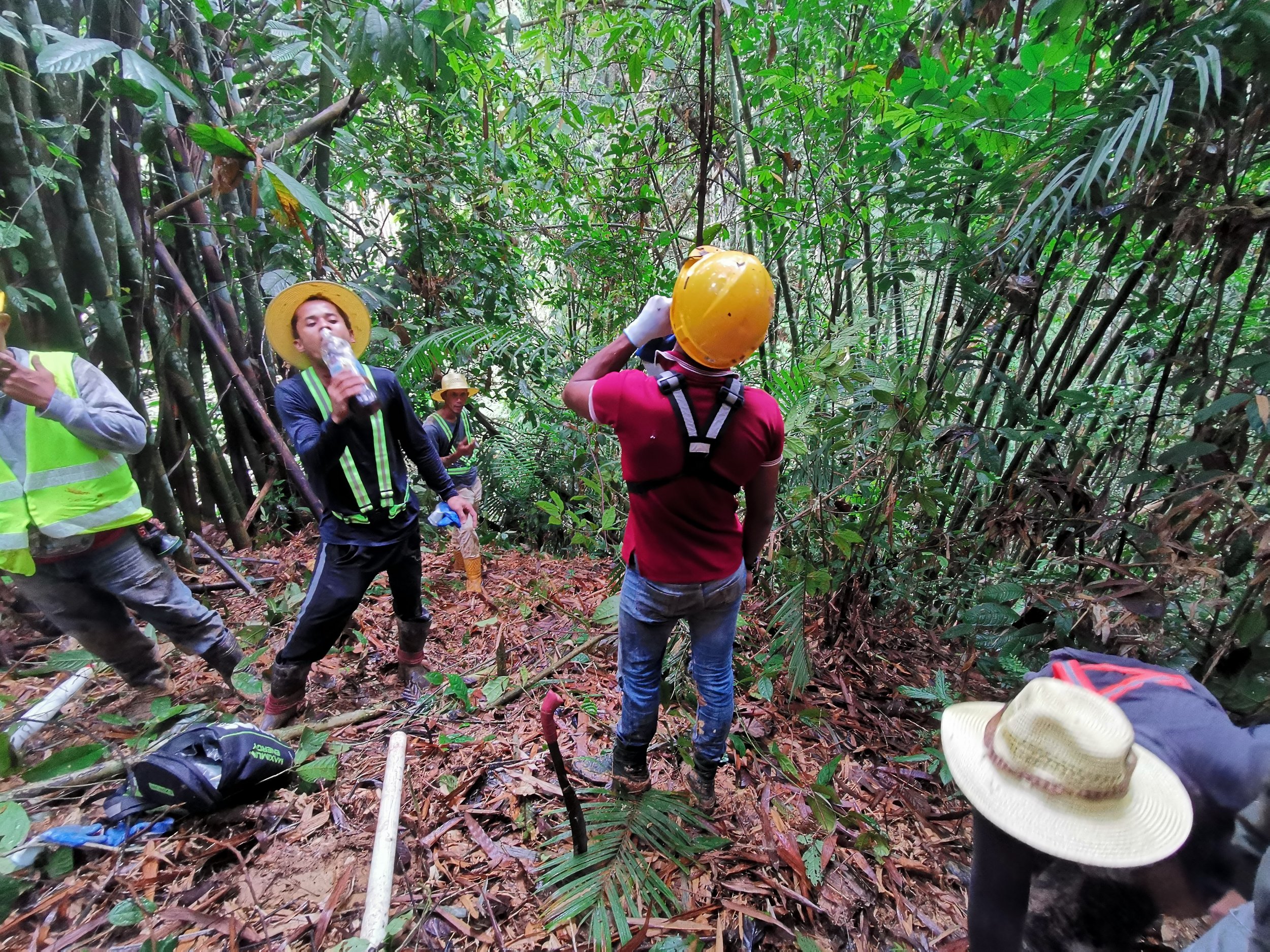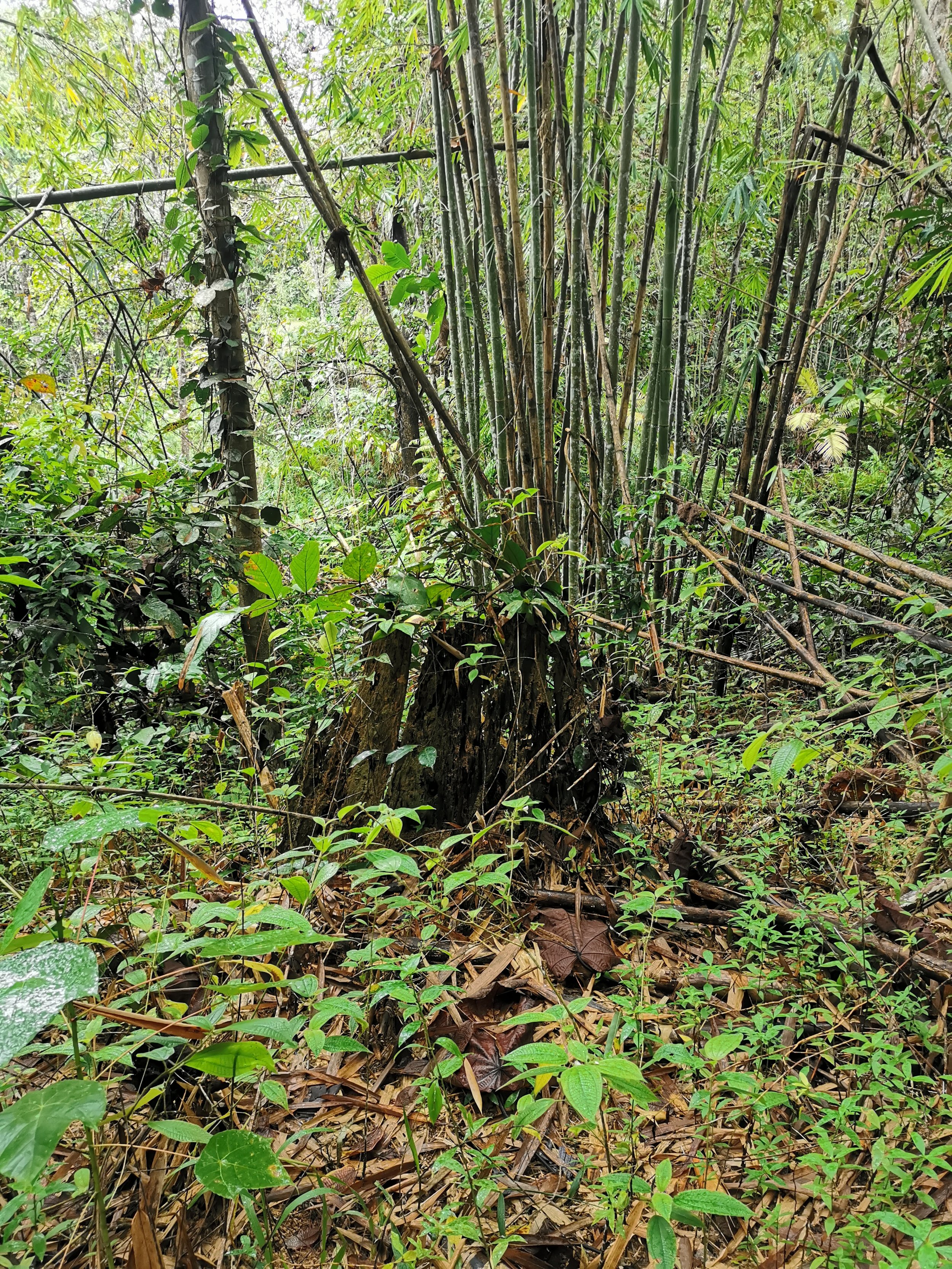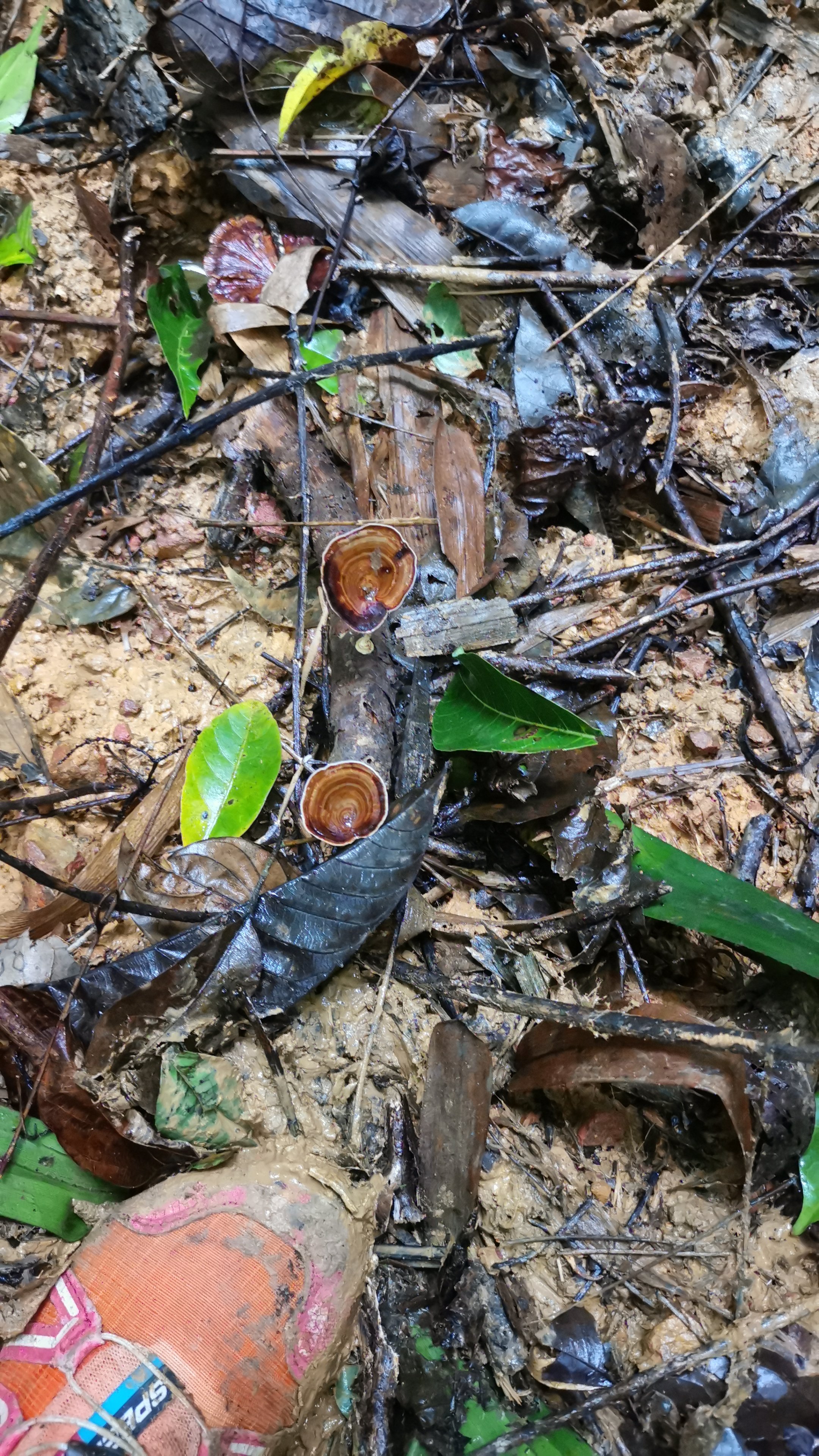Our Forest - di hujung tanduk (at the edge)
The last trip, a few days ago, was not a pleasant one. We were grateful that we encountered some animal sightings however we were wary of how little food source that they can get, which they might barely surviving as there were not many fruits or plants which edible to them to live on.
The journey in Block B was slippery, as the soil was soft and kept disintegrating as we climbed up on or went down the parts which were hilly. The soft soil melted as we land, made us understand how unstable the ground was, hence without roots holding the ground, it will easily created landslide.



It was nice and cool as it rains intermittently throughout the day, the broad leaves kept the heavy rain at bay, making the journey bearable and the soil was not too slippery as it could be without the protection of these big leaf trees, the rain could just pour directly on us, on the ground and the trip could be more dangerous.
As we walked further the bear claws excited me, the tapirs foot print got me thrilled, the attacks by the yellow wasp got us taken aback, but the found of this plant just made me sad.
Lada tanduk
Whatever it is, the way you tell your story online can make all the difference.
What we see here today was the effect of deforestation which is not systemic which has caused a significant environmental issue in Malaysia for several decades. We have lost a considerable amount of its forest cover due to deforestation for agriculture, logging, and development activities. This has resulted in various negative impacts, including soil erosion, loss of biodiversity, and climate change.
To counteract the effects of deforestation, our government has implemented various reforestation initiatives over the years. These initiatives aim to restore degraded forests, increase forest cover, and protect biodiversity. Some of the key reforestation efforts in Malaysia include:
National Forest Plantation Development Project: This project aims to establish commercial forest plantations to meet the country's timber demands while reducing pressure on natural forests.
Forest Landscape Restoration: Malaysia has identified several areas for forest landscape restoration, such as degraded forest areas and watersheds.
Reducing Emissions from Deforestation and Forest Degradation (REDD+) Program: This program aims to reduce greenhouse gas emissions from deforestation and forest degradation while promoting sustainable forest management.
Community-Based Forest Management: This approach involves local communities in forest management activities, including reforestation, to promote community development while protecting forests.
Forest Rehabilitation: Malaysia has implemented various forest rehabilitation programs to restore degraded forests, including reforestation and enrichment planting.
Planters aim to work hand in hand with the authority and takes up the challenge in achieving the reforestation goal, making sure that we are ahead in our efforts to bring back our old rainforest to its primary state.



